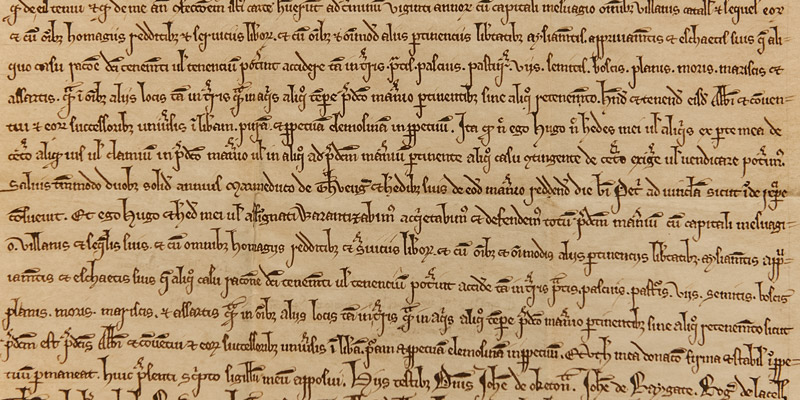Enriching understandings of immigration
-
Case study
- Culture and Communication
The England's Immigrants project has made archival material of England's medieval migrants freely available through a new online database.

The issue
The history of the British Isles was once described as an 'island story' with an isolated history punctuated with large-scale migration.
Research on migration during the late medieval period has typically been limited to studying high-status immigrant groups in major cities such as London, Bristol, or York.
In addition, schools and the general public have not had access to archival material that could demonstrate a more comprehensive picture of medieval small-scale connections and migrations between Europe and the rest of the world.
This limited portrayal of England's immigrants has led to a lack of public understanding of the history of immigration in England and consequently the cultural values and social assumptions associated with historic perception of identity.
The research
With our research we have provided major evidence for this small-scale but significant migration to England between 1330-1550. We created a fully searchable database containing the names and details of over 64,000 people who settled in England in the late Middle Ages.
The database comprises translated, edited and transcribed archival material principally from the ‘alien subsidies’ and early Tudor subsidies and letters of denization and protection, which record the names, origins, places of residence, occupations and households of the resident ‘alien’ population.
The material allows people to learn about and change scholarship to research places and individuals previously neglected in earlier scholarship, creating as comprehensive a picture as possible of migration to medieval England.
By re-examining political, economic, social and cultural histories of the period, including material culture, it has highlighted medieval English society’s preoccupations about foreigners.
The outcome
Our research has highlighted the diversity of the medieval immigrant experience and contributed an important historical dimension to current debates about immigration to Britain from Europe and the wider world.
The England’s Immigrants project has significantly changed policy and practice in the primary and secondary education sectors. The project has contributed to the new national curriculum for History, with the three main examination boards (AQA, Edexcel and OCR) revising their GCSE and A level History syllabuses to include a thematic strand on the history of migration, with an emphasis on pre-modern periods.
Schoolchildren and teachers of history now have an accessible and evidence-based understanding of medieval migration to the British Isles, helping to deliver better quality classroom teaching on medieval England.
In addition to school engagement, this database has provided and increased public access to archival material. Our research has successfully enhanced the data with sophisticated, innovative and user-friendly research tools consistent with the National Archives’ aims to increase public engagement. With over 88,000 users spending 6,455 hours researching the information, the database shows sustained and prolonged public engagement with the material.

Sarah Rees Jones
Professor Rees Jones' major research focus is in urban society and culture in England between the Norman Conquest and the Reformation.

Craig Taylor
Dr Taylor is an intellectual and cultural historian who studies the politics and aristocracies of 14th and 15th-century France and England.
